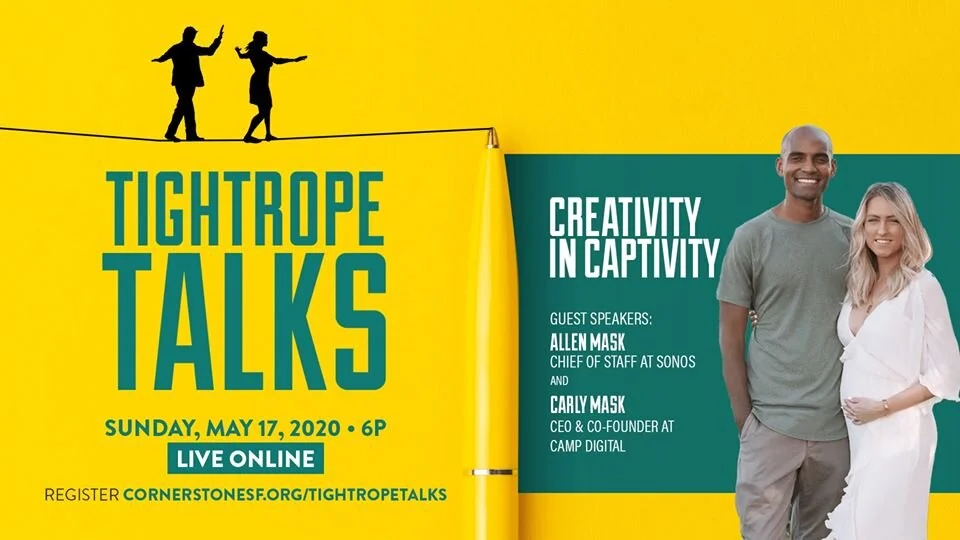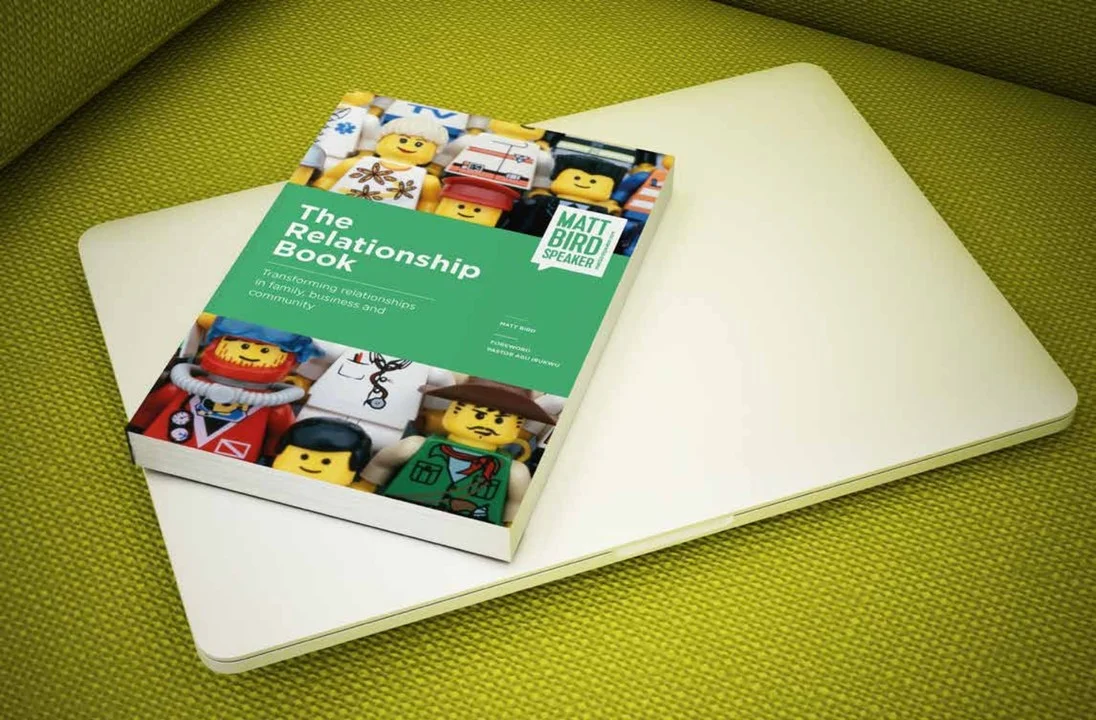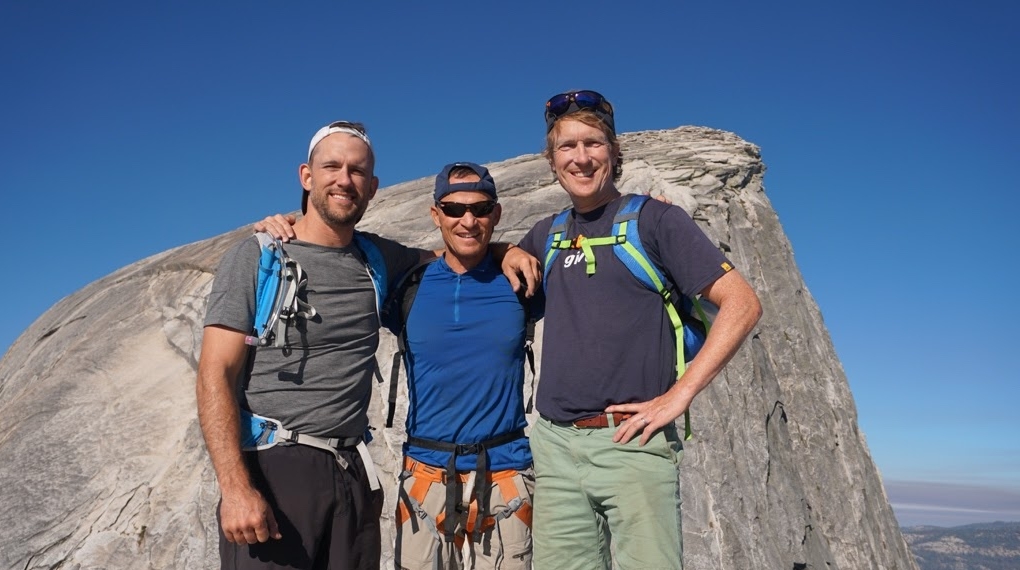God is Our Sufficiency and Supply
— by J.D. Greear
The story of Jacob in the Old Testament is a fascinating tale of pride, humility, success, failure and a man who (quite literally) wrestled with the Lord. His upbringing and family dynamics led him to a life of seeking—often deceptively—the next level of success and proving himself. JD Greear explains how understanding the life of this persistent father in the faith and Old Testament leader can help modern-day entrepreneurs avoid some common pitfalls and walk in the loving grace and freedom of Jesus.
[Jacob was] scrappy, innovative, resourceful, ruthless and even deceitful. He was just willing to do whatever it takes to get the job done. His name, Jacob, even meant deceiver. Well, like I said, he was very successful. But eventually, as often happens, some of his ruthlessness caught up with him. He found himself at a point of personal failure. And we'll go into all the details. But it was it was business failure, family failure. He's fearful for his own personal safety, even with that very night as Jacob's struggle with all this worry, doubt and despair. Genesis, 32, tells us that God appeared to him in the form of an angel and wrestled all night with him. Jacob had been able to overcome most things in his life, but he could not beat this divine opponent.
It's supposed to be symbolic of what was happening in his life. You see, a lot of things happened in that divine encounter, but most significant of which is that Jacob learned to know God as the one he couldn't overcome…and that it wasn't all on him to get the job done. He learned to depend on God. And so he ceased to have to be ruthless.
Jacob was touched by God in his hip socket. So from that point on, Jacob would walk with a limp. The best leaders usually lead with a limp. And that's because they've come to a point where they realize they can't do it on their own. And they realize that they have to trust God. They have to submit to him. And they have to do it his way. They stop being ruthless, unhealthily driven, willing to sacrifice their family or their people around them or their health or their integrity to get the job done. They stop being unethical and instead they patiently and faithfully do their work. Just trust in God to be their supply. They realize that for the person who walks with God, faithfulness, not effectiveness, is the measure of success.
A venture capitalist friend often tells me that venture capitalists are not always eager to invest in somebody whose first ever venture was a big success quickly. Sometimes it's the entrepreneur who has shown tenacity through a couple of failures that ends up being the better bet…Moses, for example, failed before he became the leader of Israel. King David and the apostle Paul both have long, frustrating times of waiting before God actually began to use them powerfully.
And in four basic phrases: there's bad news, there's worse news, there's good news, and there's better news. Bad news is you and I are separated from God and because of our separation from God, we'll spend eternity apart from him. You say that that is bad news. What could possibly be worse? Well, the worse news is there's literally nothing that you and I can do about it. No amount of religion, no matter of intentions to be good, no amount of church attendance or money given can change the reality. The good news is what we couldn't do, God did for us. He came as his Son and he died in our place so that he could offer salvation to all who would receive it. The best news, the better news, is that all you have to do is receive it as a gift. Ephesians 2:9 says that it is by grace. Grace is a free gift, that you and I are saved through faith. Faith means just receiving what God says that he did for you. And it's not of ourselves. It's the gift of God. It's not works, not a human accomplishment, so that nobody can boast. It's faith in what Jesus has done.
When we understand that we're just humble servants that are focused on obedience, trusting that if we do what God wants, he will be our sufficiency and our supply.
Related articles
One of the hardest things many of us experience is waiting for what is next. For what’s to come. When will I get the promotion? When will I get the job? When will I get the new clients? When will this business start to take off? Why is it taking so long?
Fear and trembling aren’t bad or wrong. But you cannot ignore what comes before and behind: that we have the joy of obedience because we are blessed to know the end of the story, and that it is God who is working in and through us to carry out His good purpose.
No matter what happens, I will strive to continue living shalom, because it is not dependent upon my financial success or how well I manage a company or whatever else may happen in my life, but rather on my daily obedience to God’s calling.
The story of Jacob in the Old Testament is a fascinating tale of pride, humility, success, failure and a man who (quite literally) wrestled with the Lord.
Achieve, work harder, be a go-getter, pursue. These concepts which are so familiar to entrepreneurs are not inherently bad but have the potential to knock us on our backs if not kept in the right context.
What if God is glorified by taking us to Red Sea Moments on purpose? How do you respond as a leader when you find yourself up against the wall?
Each season is indeed remarkable. However, the season I want to focus on is winter. With everything gray and cold, winter can seem like a lost season. But it isn’t. In fact it’s vital for the garden.
For the first time since the threat of nuclear annihilation hung over the UK in the 60s, millions of us are worried about dying, or worried about someone else dying. Suddenly, the question ‘if you were to die tonight, where would you go?’ has a fresh pertinence.
Survival is a funny thing. Survival can feel good. The adrenaline rush which comes from dodging a train is a good one. But if we get into a habit of just avoiding bad outcomes, we can easily start redefining success as “we’re good at avoiding bad outcomes.”
I never saw it coming. I started my business part-time in January, 2000, and I completed my MBA in September of the same year. I purchased my second new construction home. Things were going well, and I could not have been happier.
Both the most generous and the most covetous people I’ve ever met have been people on the low end of the economic ladder. The generosity I received a few years ago in Uganda among the poorest of the global poor, at times, brought me to tears.
Although pain is inevitable, misery is optional. The same calamity can produce positive change in one person and cause caustic bitterness in another. Whether pain's life-shaping power makes us better or bitter depends on what we believe about God.
It’s now clear that COVID-19 is a deadly serious global pandemic, and all necessary precautions should be taken. Still, C. S. Lewis’s words—written 72 years ago—ring with some relevance for us. Just replace “atomic bomb” with “coronavirus.”
None of us, including experienced business people, have led a company in such a time as this. For over 20 years, Charlie Paparelli has been an professional angel investor and entrepreneur, co-founding 12 startups and investing in twenty-three. Read his take on where we go from here…
“The scripture speaks of God ‘shaking things that can be shaken that the things that cannot be shaken may remain.’ He has a way of doing that in big and little ways. He shakes things. He is not a God of the status quo. And why is that true? It is true because in a static world we would never grow or be conformed to the image of Christ and there would be no need for faith. We could simply live ‘by sight.’ That’s not His plan.” This message was originally sent from The C12 Group Founder Buck Jacobs to C12 Group members. The C12 team hopes his words offer peace, calm and hope while being extremely timely and profound.
When we (C12 Group) first began to release information, resources and guidance on playing offense in regards to COVID-19 in February there were some reports of “what’s the big deal, it’s not effecting my city, business, industry.” Those delusions are quickly fading. As a global economy, human race, and universal Church everyone is and will be effected in one way or another.
Elbow grease and a hard work ethic are found within the heart of every entrepreneur, but Tom Strickland of Suncoast Team Services possesses something stronger: the fervent desire to see God honored in every build. Tom realizes that the successful entrepreneur is the man or woman that relinquishes control to God, and that the success or failure of a project is in the Master Builder’s capable hands.
Jerry Colangelo is a legend in the world of professional sports, but that isn’t how he wants to be remembered. Instead, Jerry hopes that when people think of him they will say, “He cared.”
Rather than succumb to the negativity that was permeating our culture in the 2009 economic crisis, Derek had a vision of launching a new business that would provide jobs, hope and source of optimism. What was that vision? It was that of a self-serve frozen yogurt shop.
Norm Miller, founder of I Am Second Leadership, told TwoTen about how his desires became less about him and more about Him. To date, the “I Am Second” web site has been visited over ten million times in over 56 countries. More of that journey is included in this blog post ...
For over 20 years, Charlie Paparelli has been an professional angel investor and entrepreneur, co-founding 12 startups and investing in 23. On a daily basis, he mentors 10 startup founders and advises many more. Read more about his 11 thoughts on how to see failure as an entrepreneur.a
We’re huge fans of DIFW, Jeff Haanen, and their podcast The Faith & Work Podcast. They recently interviewed New York Times columnist and best-selling author David Brooks about his new book The Second Mountain. We highly recommend you listen in!
Located in the heart of downtown Chattanooga, First Presbyterian frequently receives requests for financial assistance from local residents. Over the past decade, the church has intentionally changed the way they help their neighbors in need.
Whether you’re trying to trust yourself, your employees, or God, letting go of the desire for control never seems to get any easier. Today, we have a parable from Henri Nouwen on this very idea.
Let’s not let our identity or vision be an excuse for bad leadership, but rather the fuel and motivator for great leadership. One of my agendas in the work I do, frankly, is to redeem the brand dignity of “Christian business leadership” to be associated with the very highest standards in society
‘It is human to crave certainty. The problem with certainty is that it creates self-sufficiency. If we feel that we know everything or have everything, why would we need God?’ Find out more in this extract from 'The Relationship Book' by Matt Bird.
“If you've been following us at FDE for a while, you know that the concepts of identity and generosity are two of them. A third, and the subject of this blog, is the difference between being faithful and willful. As entrepreneurs, things seemed to go well when we were faithful, things tended not to go well when we were willful. I hope you are blessed by David Morken’s (CEO of Bandwidth) note the way that I have been…”
——
[ Photo by Free To Use Sounds on Unsplash ]





























Sometimes the journey of faith is more important than the actual on-going success of a business.